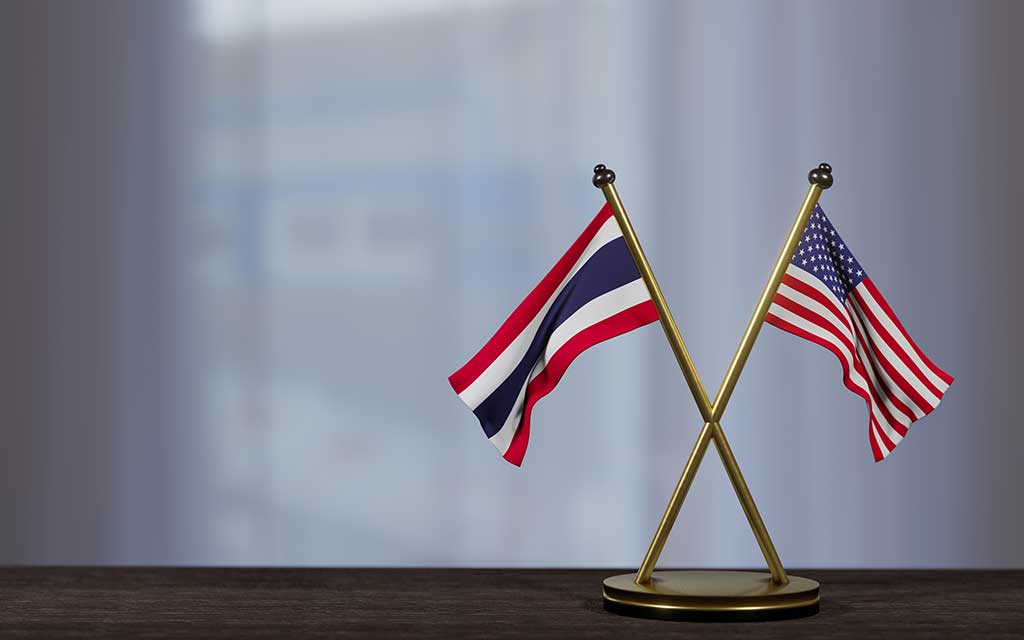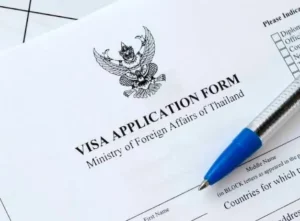The US-Thailand Treaty of Amity and Economic Relations, commonly known as the Treaty of Amity, is a bilateral agreement that facilitates trade and investment between the United States and Thailand. This treaty offers unique advantages to American businesses operating in Thailand, providing a framework for economic cooperation and ensuring certain protections and privileges.
1. Historical Background of the Treaty of Amity
The Treaty of Amity was signed on May 29, 1966, and came into effect on June 8, 1967. It was designed to promote economic relations between the two countries, reflecting the close diplomatic and strategic ties that have existed for over a century.
Historical Context
- Early Relations: The US and Thailand established formal diplomatic relations in 1833 with the Treaty of Amity and Commerce.
- Cold War Era: The Treaty of Amity of 1966 was part of broader US efforts to strengthen alliances in Southeast Asia during the Cold War.
2. Key Provisions of the Treaty
The Treaty of Amity provides several significant benefits to American companies, ensuring they receive treatment similar to that of Thai companies in most sectors.
2.1 National Treatment
Equal Rights:
- US companies are allowed to maintain a majority shareholding or wholly own businesses in Thailand, except in certain restricted sectors.
Market Access:
- American businesses can engage in the same activities as Thai nationals without needing to comply with most of the foreign investment restrictions stipulated in the Foreign Business Act (FBA).
2.2 Protection from Nationalization
Security of Investments:
- The treaty ensures that American businesses and their investments in Thailand are protected from nationalization or expropriation without proper compensation.
2.3 Dispute Resolution
Legal Framework:
- The treaty provides a framework for resolving disputes between American investors and the Thai government, ensuring fair treatment under Thai law.
3. Business Activities Allowed Under the Treaty
While the Treaty of Amity grants significant freedoms, there are certain business activities where American companies do not enjoy preferential treatment and must comply with local laws.
3.1 Permitted Activities
Trading and Services:
- Import/export activities, wholesaling, retailing, and most service sectors.
Manufacturing:
- American companies can engage in manufacturing activities without restriction.
3.2 Restricted Activities
Exceptions:
- Sectors such as land ownership, natural resources exploitation, and domestic transportation are excluded.
- Certain professional services like accounting, legal, and architecture may also have restrictions.
4. Establishing a Business Under the Treaty
4.1 Registration Process
Corporate Structure:
- American businesses typically set up as Thai limited companies to benefit from the treaty.
Certification:
- Obtain certification from the US Commercial Service in Thailand verifying the American ownership and control of the company.
- Register the business with the Department of Business Development (DBD) in Thailand.
Required Documents:
- Company affidavit, list of shareholders, articles of association, and other corporate documents.
- Proof of American ownership and an application form for Treaty of Amity protection.
4.2 Compliance and Reporting
Annual Requirements:
- Maintain proper corporate records and submit annual financial statements to the DBD.
- Renew the Treaty of Amity certification periodically as required by Thai authorities.
5. Advantages of the Treaty for US Businesses
The Treaty of Amity provides substantial benefits that can make Thailand an attractive destination for American investors.
5.1 Market Access and Ownership
Majority Ownership:
- The ability to own and control businesses in Thailand allows for greater flexibility and control over operations and decision-making.
Operational Freedom:
- US businesses can operate under the same conditions as Thai companies, avoiding many of the restrictions faced by other foreign investors.
5.2 Legal and Financial Protections
Investment Security:
- Legal protections against nationalization and unfair treatment provide a stable environment for investment.
Dispute Resolution:
- Access to fair and transparent legal processes for resolving disputes with the Thai government.
5.3 Economic and Strategic Benefits
Regional Hub:
- Thailand’s strategic location in Southeast Asia offers access to a growing market and opportunities for regional expansion.
Economic Growth:
- Leveraging Thailand’s robust economic growth and business-friendly environment can enhance the profitability and sustainability of US businesses.
6. Challenges and Considerations
Despite the advantages, businesses must navigate certain challenges when operating under the Treaty of Amity.
6.1 Regulatory Compliance
Local Regulations:
- Adherence to Thai laws and regulations, particularly in restricted sectors, is essential.
Certification and Renewal:
- Ensuring timely renewal of certifications and maintaining compliance with treaty requirements.
6.2 Market Dynamics
Competition:
- Understanding the competitive landscape and local business practices is crucial for success.
Cultural Differences:
- Navigating cultural and business etiquette differences to build strong relationships with Thai partners and customers.
7. Case Studies
Example 1: American Manufacturing Company
Scenario:
- An American company sets up a manufacturing plant in Thailand, benefiting from majority ownership and access to local markets.
Outcome:
- Successful establishment and growth, leveraging the Treaty of Amity to operate on par with Thai businesses.
Example 2: US Service Provider
Scenario:
- A US-based IT service provider expands to Thailand, utilizing the treaty to offer services directly to Thai clients.
Outcome:
- Enhanced market presence and competitive advantage due to the ability to operate without local partnership requirements.
8. Conclusion
The US-Thailand Treaty of Amity offers substantial benefits for American businesses looking to invest and operate in Thailand. By providing national treatment, protecting against nationalization, and ensuring a fair legal framework, the treaty creates a conducive environment for economic cooperation. However, businesses must carefully navigate regulatory compliance and market dynamics to fully capitalize on these advantages. This comprehensive guide outlines the depth and detail necessary for understanding and leveraging the Treaty of Amity, ensuring informed decision-making and strategic planning for US businesses in Thailand.










